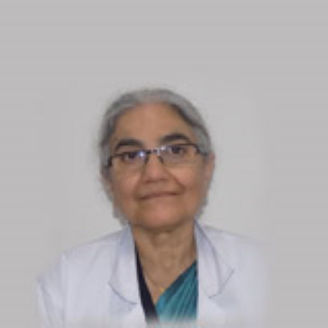Your Guide to Finding the Right Neurologist: 5 Essential Tips
Learn how to find the right neurologist with this practical guide. Explore five essential tips, from verifying credentials to assessing comfort and communication, to make an informed choice for your neurological care.

Written by Dr. Dhankecha Mayank Dineshbhai
Reviewed by Dr. Mohammed Kamran MBBS, FIDM
Last updated on 13th Jan, 2026

Introduction
Being referred to a neurologist can feel like a daunting step. Whether you are seeking answers for persistent headaches, managing a chronic condition such as epilepsy, or investigating unexplained symptoms, finding the right brain and nerve specialist is crucial for your health. This is not just about locating any doctor; it is about finding a partner in your care—someone with the right expertise, a compassionate approach, and with whom you feel comfortable.
This guide will walk you through five essential tips, from verifying credentials to assessing the all-important personal fit, to empower you to choose a neurologist who is truly the best match for your needs.
Why Choosing the Right Neurologist is Critical
Your neurological health impacts your overall well-being, influencing movement, memory, senses, and sleep. The complexity of the nervous system means that expertise and precise diagnosis are essential. A neurologist acts as a detective, piecing together symptoms to create an effective management or treatment plan.
The Role of a Neurologist in Your Healthcare Journey
A neurologist is a medical doctor specialising in disorders of the brain, spinal cord, nerves, and muscles. They diagnose and treat conditions including stroke, Alzheimer's disease, Parkinson's disease, multiple sclerosis, migraine, and epilepsy. While they do not perform brain surgery, they often manage long-term care and treatment plans.
The Impact of a Good Doctor-Patient Relationship on Neurological Health
Many neurological conditions are chronic, requiring ongoing care and treatment adjustments. A strong, trusting relationship fosters open communication, ensures you are heard, and makes you an active participant in your care. This collaboration can improve adherence to treatment and your overall quality of life.
Consult Top Specialists for Personalised Tips
Tip 1: Start with a Strong Referral and Verify Credentials
Starting with a reliable referral builds a foundation of trust. Your primary care physician is often the best source, as they know your medical history and can recommend specialists suited to your suspected condition.
How to Get a Trustworthy Referral
Consider recommendations from friends, family, or condition-specific support groups. Online reviews can be useful, but should be treated as one data point among many rather than the sole deciding factor.
The Non-Negotiables: Board Certification and Licensure
Ensure the neurologist is board-certified in neurology and has an active license. Board certification demonstrates rigorous training and expertise.
You can also conveniently book a consultation with a verified neurologist online through Apollo24|7 to begin your care journey with a trusted specialist.
Tip 2: Deep Dive into Specialisation and Experience
Neurology covers a wide range of conditions. A specialist in movement disorders will have a different skill set from one focusing on headache medicine or paediatric neurology.
Neurology Subspecialties: Finding Your Match
Neurologists may pursue fellowships in areas such as:
Neurophysiology (EEG, EMG)
Epilepsy
Stroke and Vascular Neurology
Headache Medicine
Movement Disorders
Sleep Medicine
Neuromuscular Medicine
Neurocritical Care
For complex or rare conditions, seeing a subspecialist can improve access to specialised care and the latest treatments.
Questions to Ask About Treatment Experience and Patient Outcomes
Consider asking:
What percentage of your practice focuses on my condition?
How many patients with my diagnosis have you treated?
What treatment pathways do you typically recommend?
Understanding their experience with your condition is crucial for making an informed choice.
Tip 3: Research Hospital Affiliations and Care Quality
The hospital where a neurologist practices often reflects the standard of care. Top hospitals usually have advanced technology, clinical trials, and comprehensive support services.
Why the Hospital Matters for Neurological Care
Access to facilities such as a Comprehensive Stroke Center, epilepsy monitoring unit, or neurosurgery department can be vital. Hospital affiliations often indicate better coordination between specialists and access to cutting-edge diagnostics and treatments. Check hospital rankings and ratings for neurology and neurosurgery.
Tip 4: Prioritise Communication and Comfort
Expertise is important, but a neurologist’s ability to listen, explain, and empathise is equally vital. You need to feel comfortable discussing your concerns and asking questions.
The First Phone Call: Gauging Office Staff and Environment
Your first contact is usually with the office staff. Were they courteous and helpful? Were details about insurance, availability, and new patient procedures clear? Staff behaviour often reflects the practice environment.
Your First Consultation: Assessing Bedside Manner
During your first visit, observe whether the doctor listens attentively, explains complex ideas clearly, and involves you in decision-making. A neurologist with excellent bedside manner will make you feel like a partner in your care. If you feel rushed or dismissed, continue your search, even if the credentials are strong.
Tip 5: Navigate Insurance and Practical Logistics
Even the best doctor may not be practical if costs, location, or availability are barriers.
Understanding Your Insurance Coverage for Specialist Care
Confirm the neurologist is in-network. Understand referral requirements, co-payments, and deductibles to avoid unexpected expenses.
Location, Availability, and Telehealth Options
Consider the commute, office wait times, and appointment scheduling. Telehealth consultations can offer convenience, especially for follow-ups or if travel is difficult.
Platforms like Apollo24|7 allow you to consult a neurologist online, providing a flexible way to start your care.
Conclusion
Choosing a neurologist requires careful research and consideration. This process combines objective factors, like credentials, experience, and hospital affiliation, with subjective elements such as comfort and communication. By following these five tips, you can make a confident, informed choice and establish a collaborative relationship with your neurologist. Investing time to find the right specialist enhances the quality of your care and peace of mind. Start your journey today by making initial calls or consulting a neurologist online with Apollo24|7 for timely guidance.
Consult Top neurologist
Consult Top Specialists for Personalised Tips

Dr. Aditendraditya Singh Bhati
Neurosurgeon
21 Years • MBBS(2004), DNB Neurosurgery(2014); MNAMS; Fellow Skull Base Endoscopy (Italy), Fellow Extended Skull Base ( Weill Cornell, USA), Fellow ZAP-X Radiosurgery. Member of American Association of Neurological Surgeons
Delhi
Apollo Hospitals Indraprastha, Delhi
(100+ Patients)

Dr. Ganeshgouda Majigoudra
Neurologist
10 Years • MBBS, MD ( GENERAL MEDICINE) DM (NEUROLOGY)
Bengaluru
Apollo Clinic, JP nagar, Bengaluru

Dr. E Prabhakar Sastry
General Physician/ Internal Medicine Specialist
40 Years • MD(Internal Medicine)
Manikonda Jagir
Apollo Clinic, Manikonda, Manikonda Jagir
(150+ Patients)

Dr Debnath Dwaipayan
Neurosurgeon
9 Years • MBBS, MS(Gen. Surgery), DrNB (Neurosurgery)
Delhi
Apollo Hospitals Indraprastha, Delhi

Dr. Meena Gupta
Neurologist
49 Years • MBBS, MD (Paediatrics), DM (Neurology)
Gurugram
APOLLO SUGAR CLINICS GURUGRAM, Gurugram
Consult Top neurologist

Dr. Aditendraditya Singh Bhati
Neurosurgeon
21 Years • MBBS(2004), DNB Neurosurgery(2014); MNAMS; Fellow Skull Base Endoscopy (Italy), Fellow Extended Skull Base ( Weill Cornell, USA), Fellow ZAP-X Radiosurgery. Member of American Association of Neurological Surgeons
Delhi
Apollo Hospitals Indraprastha, Delhi
(100+ Patients)

Dr. Ganeshgouda Majigoudra
Neurologist
10 Years • MBBS, MD ( GENERAL MEDICINE) DM (NEUROLOGY)
Bengaluru
Apollo Clinic, JP nagar, Bengaluru

Dr. E Prabhakar Sastry
General Physician/ Internal Medicine Specialist
40 Years • MD(Internal Medicine)
Manikonda Jagir
Apollo Clinic, Manikonda, Manikonda Jagir
(150+ Patients)

Dr Debnath Dwaipayan
Neurosurgeon
9 Years • MBBS, MS(Gen. Surgery), DrNB (Neurosurgery)
Delhi
Apollo Hospitals Indraprastha, Delhi

Dr. Meena Gupta
Neurologist
49 Years • MBBS, MD (Paediatrics), DM (Neurology)
Gurugram
APOLLO SUGAR CLINICS GURUGRAM, Gurugram
More articles from General Medical Consultation
Frequently Asked Questions
How much does it cost to see a neurologist?
Costs vary depending on insurance, reason for visit, and location. Initial consultations are typically more expensive than follow-ups. Confirm details with your insurance provider.
What should I expect during my first neurologist appointment?
Expect a review of your medical history and a neurological examination testing reflexes, coordination, strength, sensation, and cranial nerves. The doctor will discuss symptoms, order tests, and start forming a diagnosis and treatment plan.
How long does it usually take to get a new patient appointment?
Wait times range from a few weeks to several months. For urgent concerns, inform your referring doctor and the neurologist’s office; they may accommodate you sooner or recommend another specialist.
Is it okay to get a second opinion from another neurologist?
Yes. For complex or life-changing diagnoses like MS or Parkinson's, second opinions are common and encouraged. They provide confirmation and ensure confidence in the treatment path.
What’s the difference between a neurologist and a neurosurgeon?
Neurologists manage neurological conditions with medications and non-surgical treatments. Neurosurgeons perform operations on the brain, spine, and nerves. Neurologists refer patients to neurosurgeons if surgery is needed.




